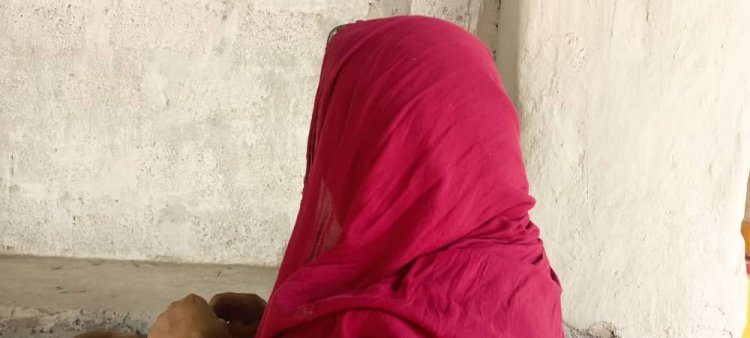Destinies Traded Away: Girls Promised for Marriage Before Birth

Child marriage and the practice of promising unborn girls to male relatives remain serious challenges across many parts of Afghanistan. These harmful traditions continue to affect the lives of women and girls and leave behind deep social and psychological consequences.
In a remote area of Khan Abad district in Kunduz province, a woman shares her painful story—a life shaped by a harmful custom that promised her daughter to another family even before she was born.
Zainab, a 46-year-old mother, tearfully recalls her daughter Gulsoom’s fate. Before Gulsoom even opened her eyes to the world, her future had already been decided by her father.
“When I was pregnant,” she says, “my husband’s brother told him, ‘If your wife gives birth to a girl, she will be for my son.’ And that’s exactly what happened. I gave birth to a girl, and later, my husband gave her to his nephew—who was five years older than her.”
Zainab explains that at the time of giving birth, her only hope was that the baby would be a boy—not because she wanted a son, but because she wanted to protect her child from the fate already decided for her in the womb.
She adds that she never consented to the arrangement and had expressed her unwillingness several times, but no one listened to her back then.
With a trembling voice, Zainab recounts that her daughter was married around six years ago, when she was just 15. Since then, she has endured forced labor, beatings, and countless hardships. On top of all that, she became a mother at a very young age, adding more burdens to her already difficult life.
Her husband, Zainab says, is incapable of providing for the family and is completely addicted to drugs. As a result, her daughter and grandchildren face shortages of food, clothing, and medicine, and her daughter has fallen into psychological distress.
She adds, “We often help her with food, but how long can we keep doing that? She is trapped in her husband’s house. Many times she has told me she wants to end her life. I try to comfort her, but her life has been reduced to dust.”
Zainab says Gulsoom is now living under the weight of a fate that was imposed on her.
Even her husband, she adds, has become mentally ill after their daughter’s marriage and regrets the decision he made years ago. He is in pain because he sees his daughter suffer and is helpless to do anything about it.
“My husband was very upset,” Zainab says. “He regretted giving our daughter to his nephew. I also objected, but he told me, ‘It was a promise I made years ago.’ In the end, I had no choice but to let her marry the same boy my husband had once promised her to.”
With tears in her eyes, Zainab calls on other families not to sacrifice their daughters to destructive traditions.
“Don’t kill your daughters with your own hands,” she pleads. “Let them go to school. Let them choose their own partners. If you don’t give your daughters their rights, you will live in regret forever.”
Meanwhile, Islamic scholar Hikmatullah Hanafi says making conditional agreements over unborn children is against Islam. He emphasizes that in Islam, marriage is only valid when both the bride and groom are of age and give their free consent. Any marriage conducted without that consent, he says, is not valid.
“In Islamic jurisprudence,” Hanafi explains, “the consent of both the girl and the boy is essential at the time of marriage. If that is not observed, the marriage is not legitimate. Naming an unborn girl for someone else is forbidden in Islam, and a girl subjected to this can seek divorce.”
In many parts of Afghanistan, families still make gender-based promises before birth, especially within extended families. These practices often lead to serious psychological and social harm for the girls involved.
